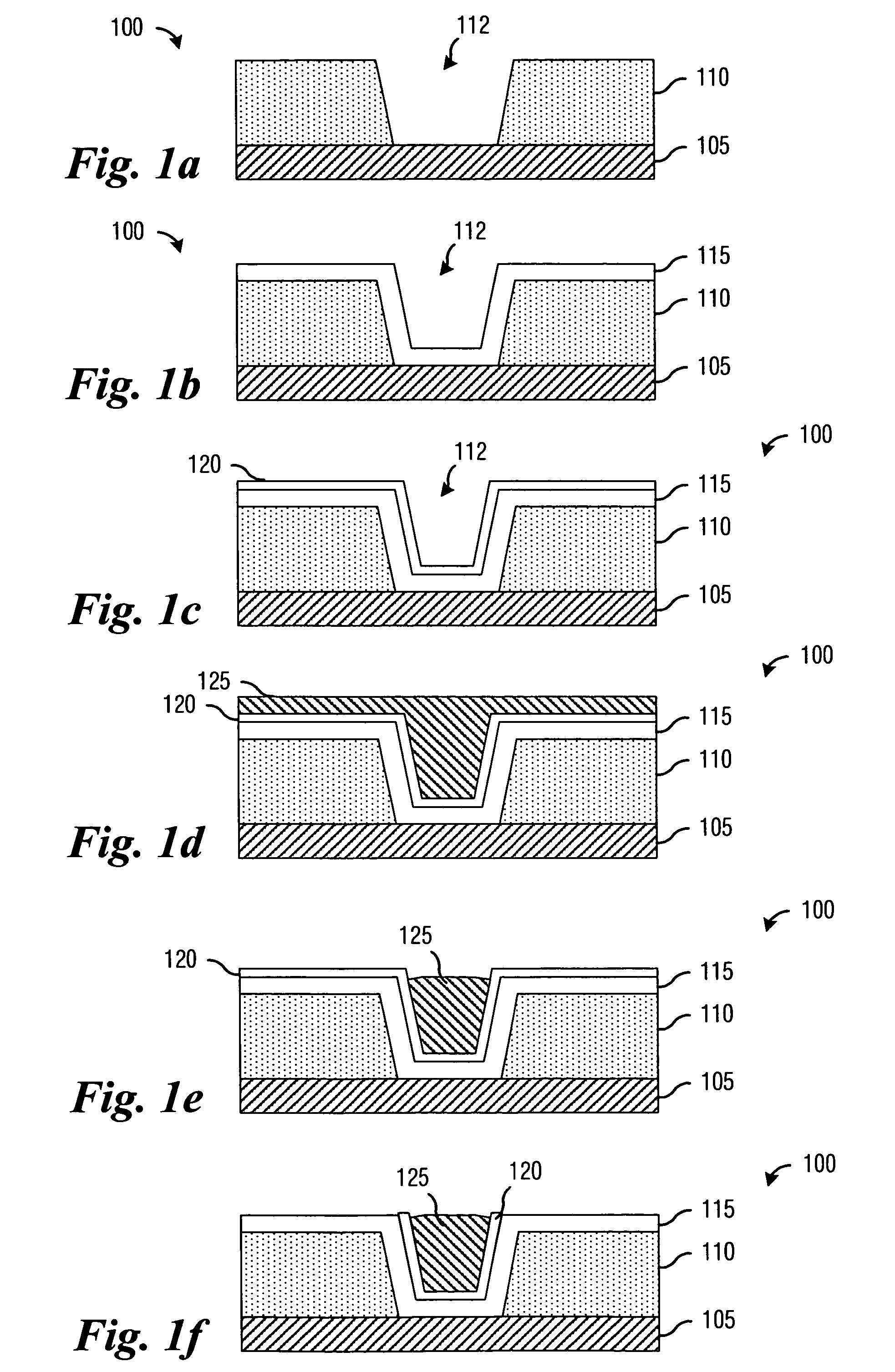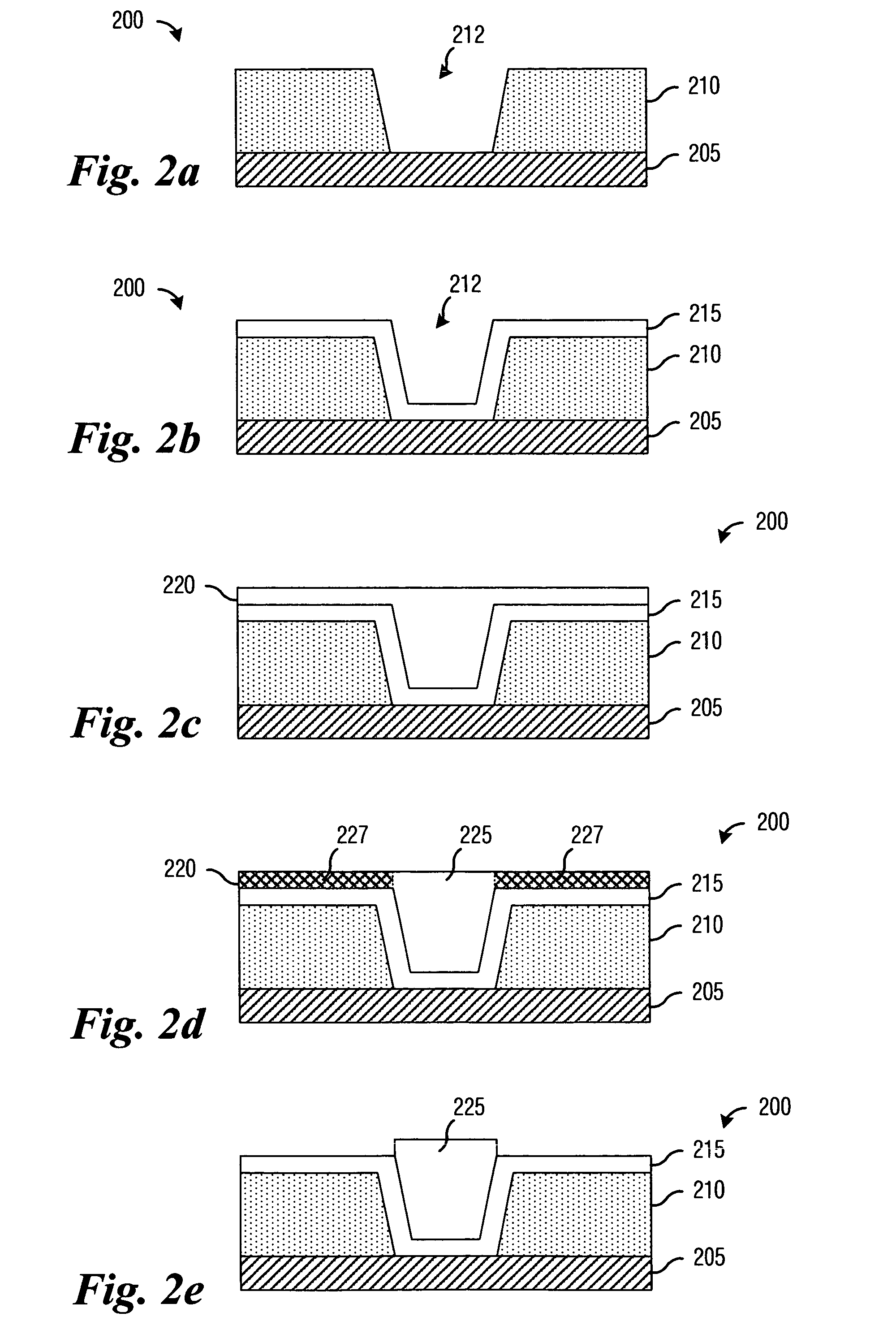System and method for filling vias
a technology of integrated circuits and vias, applied in the field of system and a method for filling vias, can solve the problems of additional process steps, insufficient mechanical strength to provide long-term reliability, etc., and achieve the effect of reducing the number of process steps, and reducing the manufacturing cost of products
- Summary
- Abstract
- Description
- Claims
- Application Information
AI Technical Summary
Benefits of technology
Problems solved by technology
Method used
Image
Examples
Embodiment Construction
[0021]The making and using of the embodiments are discussed in detail below. It should be appreciated, however, that the present invention provides many applicable inventive concepts that can be embodied in a wide variety of specific contexts. The specific embodiments discussed are merely illustrative of specific ways to make and use the invention, and do not limit the scope of the invention.
[0022]The embodiments will be described in a specific context, namely a micro-electro-mechanical system (MEMS) containing positional micromirrors (also referred to as a digital micromirror device (DMD)) that may be used as a spatial light modulator in a projection display system. The invention may also be applied, however, to other integrated circuits wherein there is a desire to fill vias to increase their structural integrity and / or planarity, regardless of whether the vias are used for electrical connectivity or mechanical connectivity.
[0023]With reference now to FIGS. 1a through 1f, there ar...
PUM
 Login to View More
Login to View More Abstract
Description
Claims
Application Information
 Login to View More
Login to View More - R&D
- Intellectual Property
- Life Sciences
- Materials
- Tech Scout
- Unparalleled Data Quality
- Higher Quality Content
- 60% Fewer Hallucinations
Browse by: Latest US Patents, China's latest patents, Technical Efficacy Thesaurus, Application Domain, Technology Topic, Popular Technical Reports.
© 2025 PatSnap. All rights reserved.Legal|Privacy policy|Modern Slavery Act Transparency Statement|Sitemap|About US| Contact US: help@patsnap.com



